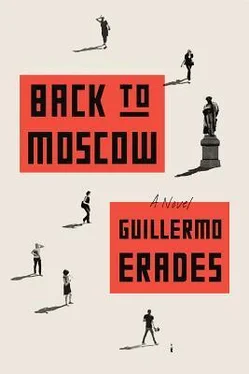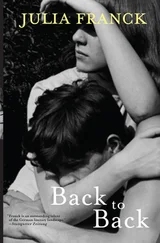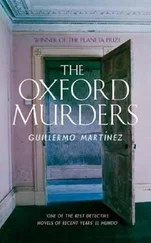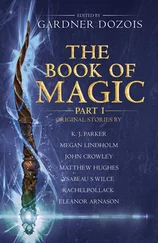‘Russian women are unfaithful. Is that your insight of the day?’
Colin turned his head both ways, as if checking that nobody could hear us. ‘That’s what makes them more interesting and challenging. It’s their culture. They’re always looking for the next thing.’
‘That’s not true,’ I said. ‘Look at Pushkin’s Tatyana. She was a faithful and devoted wife.’
‘Pushkin is Pushkin,’ Colin said.
A tall dyev with red boots walked into the café and glanced around, as if looking for a friend. Colin waved at her with a smile. He did that often with female strangers — as far as I could tell, with no results. She returned the smile politely, turned and walked back out to the street.
Colin opened The Exile and started to flip the pages. He always went straight to the club reviews to check if there were any new ratings to disagree with.
‘Karenina’s infidelity is not her main feature,’ I said, recalling an article I’d read on Tolstoy’s work from a feminist point of view. ‘Her decision to abandon her husband is about escaping conventions, about breaking free from the choices society had made for her.’
‘Whatever,’ Colin said. ‘In the end, look at Moscow today. You meet a dyev and you know she’s already looking for someone else, better-looking, wealthier. They can’t stay put.’
‘Neither can we.’
‘That’s different. We’re males. Ours is a biological need. Theirs is a materialistic pursuit. That’s the thing, if you scratch the surface, Russian dyevs are incredibly materialistic. All they want is someone to provide for them, buy them expensive clothes, holidays abroad and all that shit. They expect men to open their doors, help them with their coats. They don’t believe in equality. Not there yet.’
‘That’s crap,’ I said. ‘They’re just a bit more traditional.’
‘You know why Russian wives are so popular back in the States? Because they’re the embodiment of the American dream of the 1960s, taking care of themselves and their husbands, always perfect make-up and hair. Both servile and sensual.’
The snowflakes outside seemed to become smaller.
‘Look,’ Colin continued, ‘even when you take a dyev to a restaurant, she doesn’t give a fuck if the food is fine or cow dung, as long as it’s expensive.’
‘Maybe you meet the wrong dyevs,’ I said. ‘I know girls who search for romance.’
‘It’s not romance,’ Colin said, finishing his cup of coffee. ‘For Russian women, relationships are nothing but a transaction. They always expect something in return. That’s why it’s easy for them to become prostitutes, because they always feel you owe them something anyway. So they cross the line and ask for money.’
‘Four years in Moscow,’ I said, ‘and you still have such a stereotyped view of Russian women.’
‘I’m not doing a PhD on the subject,’ Colin said, tapping my red notebook, ‘but I’ve met my share. Believe me, sooner or later dyevs want something from you. That’s how they value how much you care, by figuring out how much you spend. Clothes, flowers, restaurant bills, they add up everything in their heads.’
‘I’ve met girls who just wanted to have fun,’ I said. ‘They didn’t expect anything in return.’
‘You don’t know what’s in their heads.’
‘I certainly don’t.’
‘Anyway,’ Colin said as he stood up. ‘I’ll leave you with your books, I need to go to a meeting. McCoy tonight?’
‘Sure.’
Colin put on his coat, shook my hand and stepped out into the street. Through the glass I watched him walk away under the snow.
THEN, AT THE END OF winter, I met Tatyana.
As temperatures rose, the roofs of Moscow began to drop enormous blocks of ice that crashed with force onto the pavement, shattering into a million ice cubes and killing — I was told — about a dozen unfortunate Muscovites every year. To stop this urban massacre, city workers were sent up the buildings to poke at the ice, provoking controlled avalanches over the streets below, after they’d cut off pedestrian traffic with yellow plastic tape. When you saw the yellow tape, you knew spring was around the corner.
‘We’re meeting the real estate agent by the Chekhov statue,’ Colin said, as we walked down Tverskaya. ‘Outside the MKhAT theatre.’
It was a bright morning. I was trying to focus on the pavement, avoiding the sludge and the slippery puddles that had frozen during the night. We turned left into Kamergersky. Anticipating the change of season, some restaurants had claimed chunks of the walkway and set up outdoor terraces — with mushroom gas-heaters and blankets draped over the chairs. All the tables were empty.
‘I hope it’s a nice flat,’ Colin said. ‘Would be great if I could move in around here.’
We stood beneath Chekhov’s statue — Anton Pavlovich, up on a pedestal, looking sad and lonely. I noticed how, as the city defrosted, the remains of sweaty ice sparkled with more intensity, as if trying to resist the sun before melting, emitting thousands of tiny reflections and covering Moscow in glitter.
‘It’s been a long winter,’ I said.
The corner between Tverskaya and Kamergersky was one of my favourite spots in Moscow. Maybe it was the way the small-village feel of Kamergersky — a pedestrian street which you might easily see in Western Europe — met the metropolitan grandeur of Tverskaya. Or perhaps it was the historical imprint of the place, with the central post office covered in Communist symbols on one side, and the Moscow Art Theatre on the other. It was in this very theatre, before and after it moved to its current location, that Chekhov had premiered his main plays: The Seagull, Uncle Vanya, Three Sisters and, just before he died, The Cherry Orchard .
The red kiosk on the corner was selling fresh blinis and the smell of fried butter wafted into the street. I suggested we have a couple of blinis while we waited. As we were about to head over, a young woman walked towards us holding a folder in her arms.
‘Hello,’ she said, in English. ‘Tatyana, from Evans.’
Tatyana’s pretty face was flushed, from the cold or perhaps because she’d been running late and walking fast. Her eyes were apple green.
We followed Tatyana into a side alley. She stopped in front of a metal door, peeked at some papers in her folder, then tapped in the door code. She climbed the stairs to the first floor, with us behind her. She was wearing a yellow woollen hat, a black coat, tight jeans.
‘Cute ass,’ Colin said into my ear.
On the landing, Tatyana rang the bell of the apartment and turned to us. ‘It’s a very nice place,’ she said. ‘You’ll see.’
Tatyana took her hat off and a mass of blonde curly hair unfurled over her shoulders. Our eyes met and she smiled for a brief moment, nervous, naive — clearly unaware of her own beauty. Her smile, which was marked by a small gap between her front teeth, cut through my many layers of skin and bone and muscle, ripping its way into my chest, making my heart pump with violence. Fucking 1917.
The doors opened and we were greeted by an old Russian couple, well-dressed, smiley — obviously expecting us. The old man was even wearing a tie.
We took our shoes off and walked in. The flat was furnished in dark soviet style, not unlike Stepanov’s flat. In fact, it was remarkably similar to Stepanov’s. The walls were lined with bookshelves. Tapestries hung above the couch. The centre of the living room was occupied by an enormous piano.
The babushka went around the apartment showing us what she thought were its best features. Her husband followed behind without saying a word.
‘The piano is well tuned,’ she said, tapping three or four random keys. ‘The apartment is very quiet because all windows face a backyard and not the pereulok.’
Читать дальше












